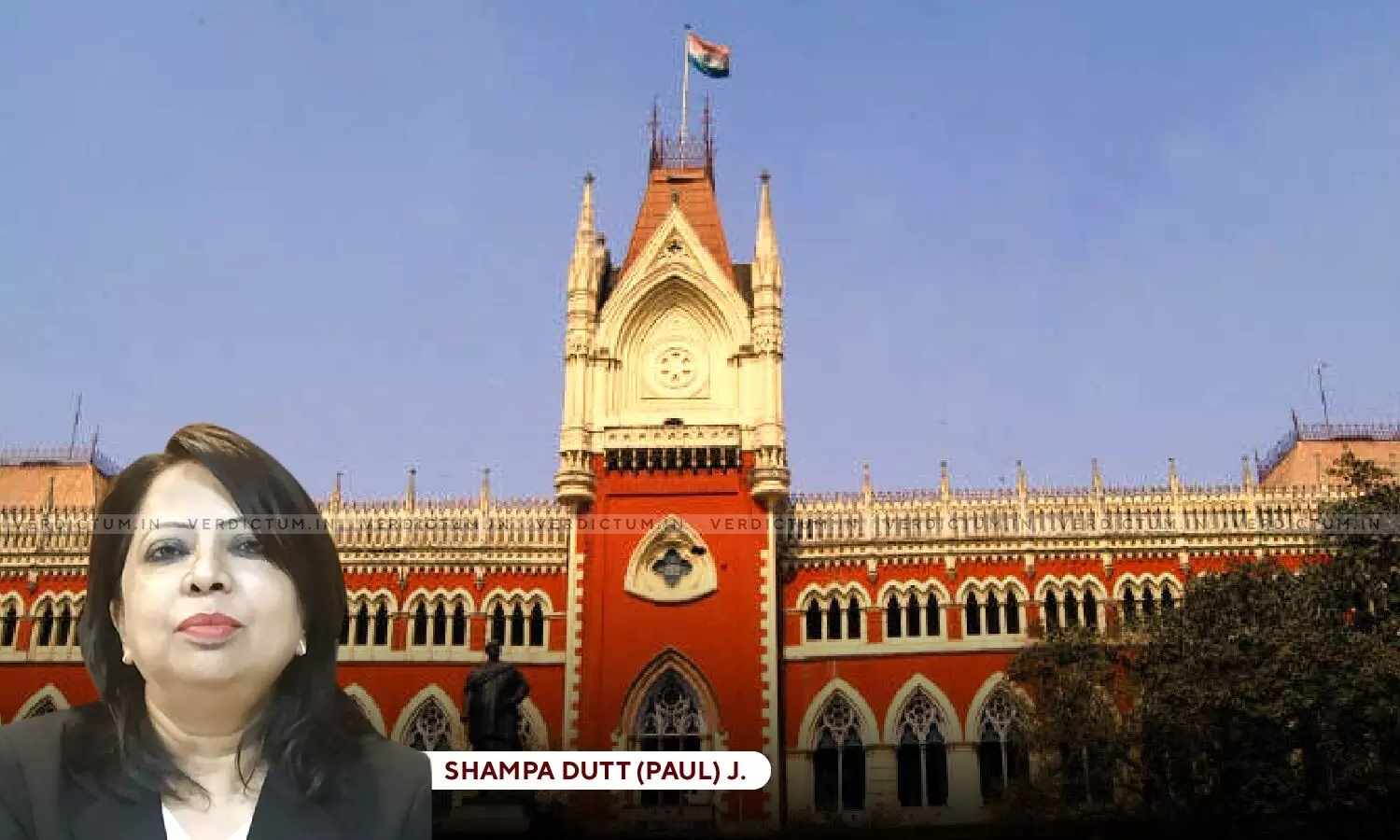
Justice Shampa Dutt (Paul), Calcutta High Court
Looking For Another Job With Rival Company With Better Perks & Facilities Is Basic Right; Doesn’t Constitute Moral Turpitude: Calcutta High Court
 |
|The Writ Application before the Calcutta High Court was preferred against the orders passed by the Controlling Authority and the Appellate Authority.
While upholding an order directing a Company to pay gratuity amount to a terminated employee, the Calcutta High Court has observed that looking for another job, even if with a rival company with better perks, is a basic right and does not constitute moral turpitude.
The Writ Application before the High Court was preferred against the orders passed by the Controlling Authority and the Appellate Authority.
The Single Bench of Justice Shampa Dutt (Paul) held, “Thus looking for another job, even if with a rival company (though, not proved in this case) with better perks and facilities is a basic right and does not constitute moral turpitude as it is not contrary to honesty, modesty or good morals.”
Advocate Nayan Rakshit represented the Petitioner, while Advocate Atanu Biswas represented the Respondent.
Factual Background
The private respondent was appointed in the petitioner company as a technician. The private respondent, being in a responsible position, was privy to various processes, techniques, and recipes which are developed with the company over the years through research and in-house experimentation, which were strictly confidential in nature. However, it was found that the private respondent violated the terms of employment and was playing the role of a middleman in contracting with another company and trying to set up another company, of Capacitor Film Manufacturing plant. After receiving proof of the same, the company issued a show cause letter to the private respondent and suspended him from service.
On the basis of the report of the enquiry officer, the private respondent was terminated from service. After an application was submitted by the respondent, the Controlling Authority passed an order directing the appellant company to pay a gratuity amount of Rs 1,37,308 along with interest. Being aggrieved, the petitioner preferred an appeal. The Appellate Authority upheld and confirmed the order of the Controlling Authority. Hence, the writ application came to be filed before the High Court.
Reasoning
On a perusal of the facts of the case, the Bench noted that the petitioner could not prove that any damage or loss to, or destruction of, property belonging to the employer was due to the act of the respondent, which was riotous, disorderly, or involved moral turpitude.
Reference was also made to the enquiry report, wherein it was revealed that the petitioner/company could neither produce any witness nor show any call records to substantiate their charge that the respondent was in touch with a rival company. The witnesses produced only stated that they saw the private respondent talk to some personnel of the rival company.
As per the Bench, the said/conduct of the enquiry/disciplinary authority was clearly an abuse of power and totally against the principles of natural justice, as there was no independent, specific finding of the disciplinary authority against the petitioner. No reasoning nor the principles of natural justice was followed. Referring to the judgment in State of Rajasthan v. Heem Singh (2020), the Bench mentioned that the findings of the Disciplinary Authority were based on “no evidence” and had been passed without considering the principles of natural justice, which was a clear perverse determination of fact.
The Bench was of the view that the order under challenge required no interference as the appellate authority had not interfered either with the disciplinary proceeding or the punishment. “The appellate authority was clearly within its power under the payment of gratuity to decide the case on merit regarding the entitlement/forfeiture of gratuity”, it said while dismissing the application.
“The order of the appellate authority is well reasoned and within jurisdiction to the extent of the provisions of the payment of gratuity and is clearly in accordance with law”, it concluded.
Cause Title: M/s. Xpro India Limited. Vs. The State of West Bengal (Neutral Citation: 2025:CHC-AS:1674)
Appearance
Petitioner: Advocates Nayan Rakshit, Nilay Rakshit.
Respondent: Advocates Atanu Biswas, Mrinal Saha, Avijit Sarkar, Abdus Salam.